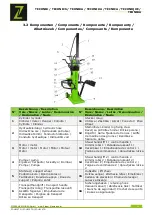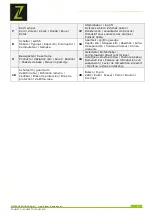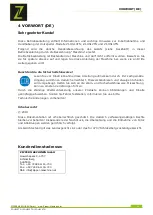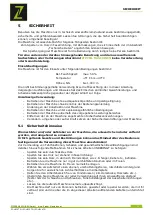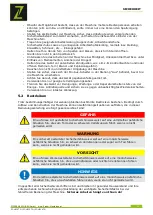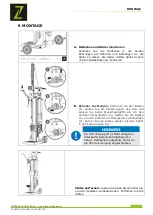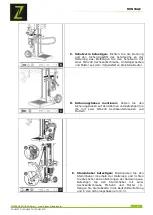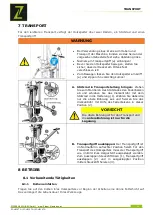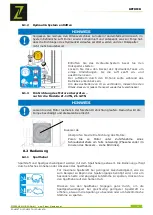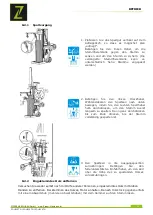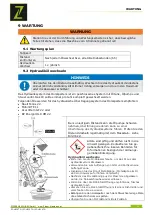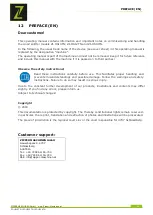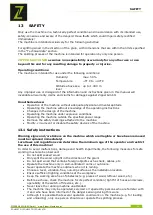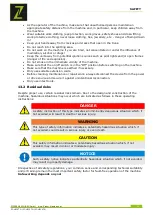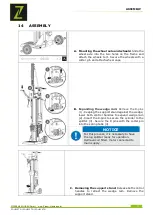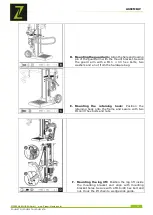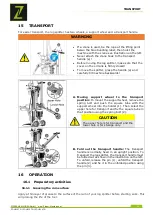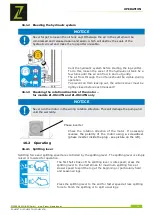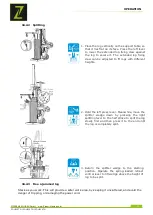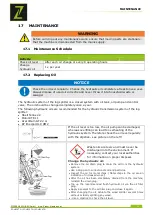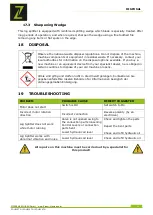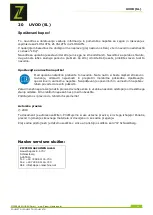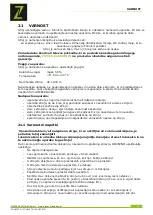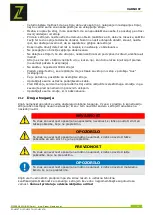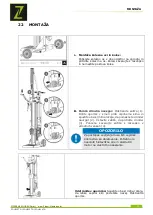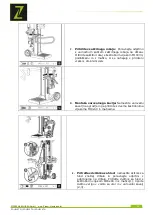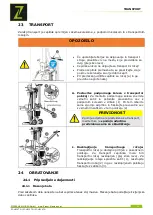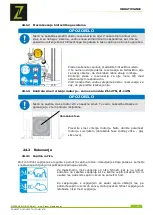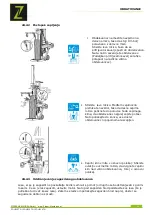
SAFETY
ZIPPER MASCHINEN GmbH www.Zipper-Maschinen.at
26
ZI-HS10TN / ZI-HS12TN / ZI-HS14TN
•
As the operator of the machine, make sure that unauthorised persons maintain an
appropriate safety distance from the machine and, in particular, keep children away from
the machine.
•
Wear suitable work clothing (eye protection, work gloves, safety shoes and close-fitting
work protective clothing, never loose clothing, ties, jewellery, etc. - danger of being drawn
in!
•
Keep your hands away from crevices and cracks that open in the trunk.
•
Do not reach into the splitting area.
•
Do not work on the machine if you are tired, not concentrated or under the influence of
medication, alcohol or drugs!
•
Keep the unit away from potential ignition sources such as pilot lights and/or open flames
(danger of fire and explosion).
•
Do not smoke in the immediate vicinity of the machine.
•
Make sure that the on/off switch is in the "Off" position before switching on the machine.
•
Make sure that the machine is earthed if necessary.
•
Only use suitable extension cords.
•
Before cleaning, maintenance or repair work, always disconnect the device from the power
or drive source and secure it against unintentional reconnection.
•
Only use intact tools.
13.2
Residual risks
Despite proper use, certain residual risks remain. Due to the design and construction of the
machine, hazardous situations may occur which are indicated as follows in these operating
instructions:
DANGER
A safety instruction of this type indicates an imminently dangerous situation which, if
not avoided, will result in death or serious injury.
WARNING
This type of safety information indicates a potentially hazardous situation which, if
not avoided, could result in serious injury or even death.
CAUTION
This safety information indicates a potentially hazardous situation which, if not
avoided, may result in minor or moderate injury.
NOTICE
Such a safety notice indicates a potentially hazardous situation which, if not avoided,
may result in property damage.
Irrespective of all safety regulations, your common sense and corresponding technical suitability
and/or training remain the most important safety factor for fault-free operation of the machine.
Safe working depends on you!

